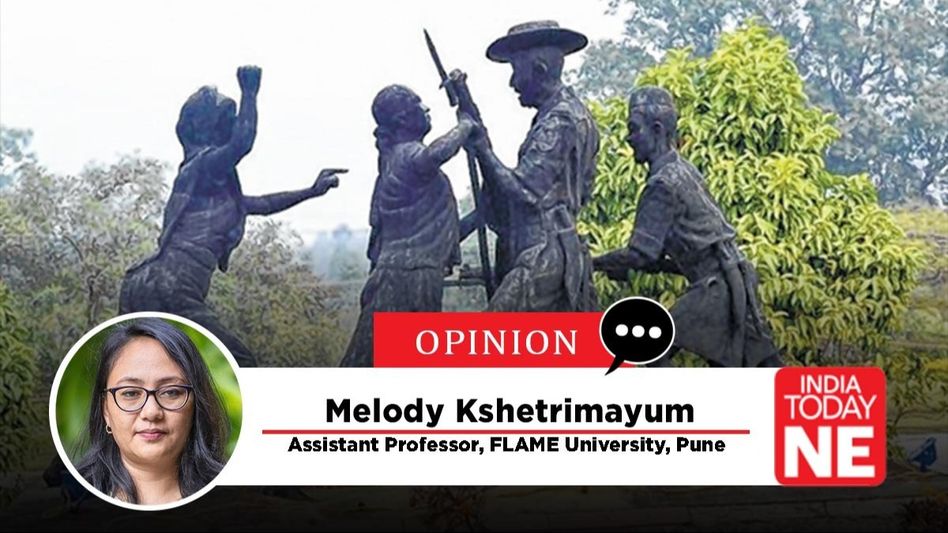Why celebrate Women and Nupilan of Manipur?
Manipur celebrates Nupilan on 12 December every year to observe the second women’s agitation of 1939 against colonial rule and its oppressive policies.

Women’s history and their role in shaping political history needs to be acknowledged in historical narratives.
There are unheard voices and invisible women in India who challenged oppression, inequality, and injustice. Manipur celebrates Nupilan on 12 December every year to observe the second women’s agitation of 1939 against colonial rule and its oppressive policies.
Nupilan, translated as women’s war, was led by ordinary women who not only shaped the then-prevailing situations of Manipur but also influenced administration and governance. It has impacted Manipuri women and beyond, in analysing the multiple layers of discrimination faced by women in the interplay of gender, ethnicity, class, and policies.
The second Nupilan was preceded by the first Nupilan in 1904when British authorities unleased multiple policies. They ordered men to extract teak woods from the Kabaw valley, practising unpaid labour (lallup system), monopolization of trades, and fine collections among many others in the aftermath of the fire that gutted Assistant Political Agent’s bungalow. The British initiated these policies to reconstruct the bungalow using unpaid labour and unjust taxes to compensate for the loss. Around 5000 women protested against the forced unpaid labour. The slogan, ‘Let every home volunteer one woman to join the movement’ led the movement. Women held protests, shut down the market, and disobeyed the British orders. The forceful protests made the British to finally withdraw the unpaid labour. This agitation marked the spirit and voice of women in Manipur’s history.
Also Read: Manipur Youth League to commence 'long march' from December 20 demanding peace in the state
Claiming the legacy of the first Nupilan, women made their voices heard once again in 1939. A series of agitations and demonstrations against attempts to re-introduce forced labour, increased water tax, and increased rice exports by the Britishpreceded this agitation. Foreign traders set up rice mills and purchased stocks of rice to export rice to Assam. Increased rice exports combined with excessive rains that damaged crops in 1939 resulted in the scarcity of rice in the state, especially in the market. Manipur had faced a near-famine situation.
There was scarcity of rice in the Khwairamband bazaar (main market in Manipur). Women who were trading rice, lost their source of livelihood. According to SanamaniYambem (1976), around 4000 women vendors protested in front of the Manipur State Durbar Office on 12 December, 1939 and demanded an immediate ban on rice export and the shutdown of rice mills run by Marwaris. With all the members of the Durbar running away through the back door, the women held the President of the Durbar and the Commandant of the Assam Rifles. A troupe of Assam Rifles personnel arrived to control the demonstration and wounded many women. This anguished the women but the women didn’t disperse. The women were pushed and wounded. The agitation seemed like a culmination of the years of protests.
Women boycotted the Khwairamband bazaar and organised public meetings to mobilise people. Yambem writes, that although the grievances were not redressed immediately, the state authorities had begun to consider the women as a force to reckon with and their handling of the boycott showed a fair degree of caution.
The protests continued for several days and months. When the protest gain momentum, the women requested social and political activist, HijamIrabot to lead the movement. The women boycotted the Khwairamband Bazaar which hugely affected the trade and economy of the state. With Irabot’s support, many men joined, the movement became more organised and launched civil disobedience towards non-payment of taxes and feudal dues. The movement that started as an agitation against export of rice became a movement against unjust administration, economic policies and malpractices.
Acknowledging Nupilan of Manipur in the dominant history discourses is intrinsic to visibilising voices of the margins. The spirit and the collective identity created by Nupilan is imbibed in all Manipuri women. The Great June Uprising Day of 2001 against the ceasefire agreement between NSCN-IM and GoI, The Naked Protest in 2004 against the assault and killing of Manorama in 2004 and the Meira Paibis’ peacebuilding activities in the ongoing Manipur violence of 2023 showed women’s critical role in shaping the socio-political history of the state. Integrating these voices and the activism of ordinary women in the dialectics of history would provide a unique way of understanding invisible women and bring a holistic approach towards knowledge building.
Copyright©2025 Living Media India Limited. For reprint rights: Syndications Today









